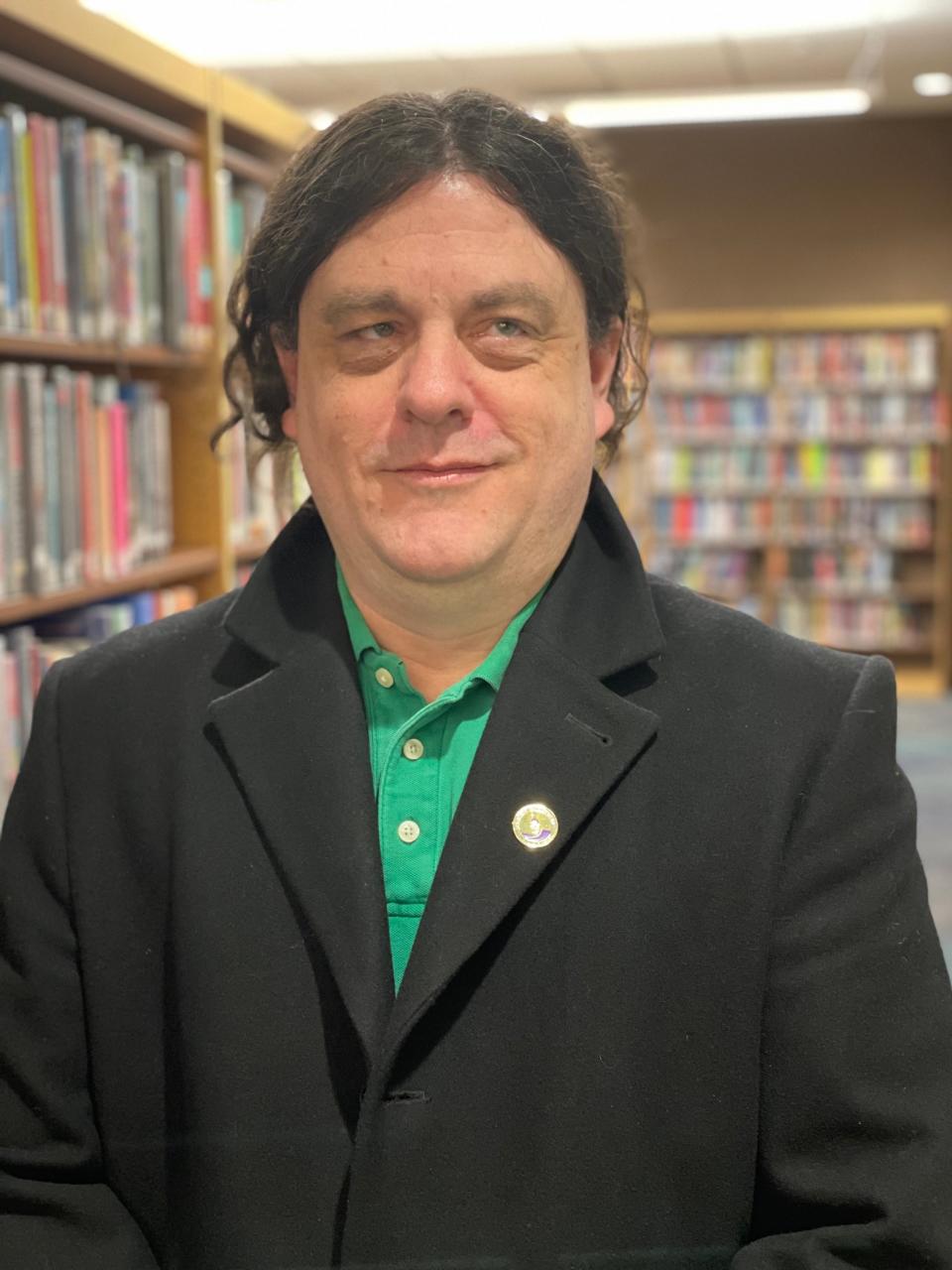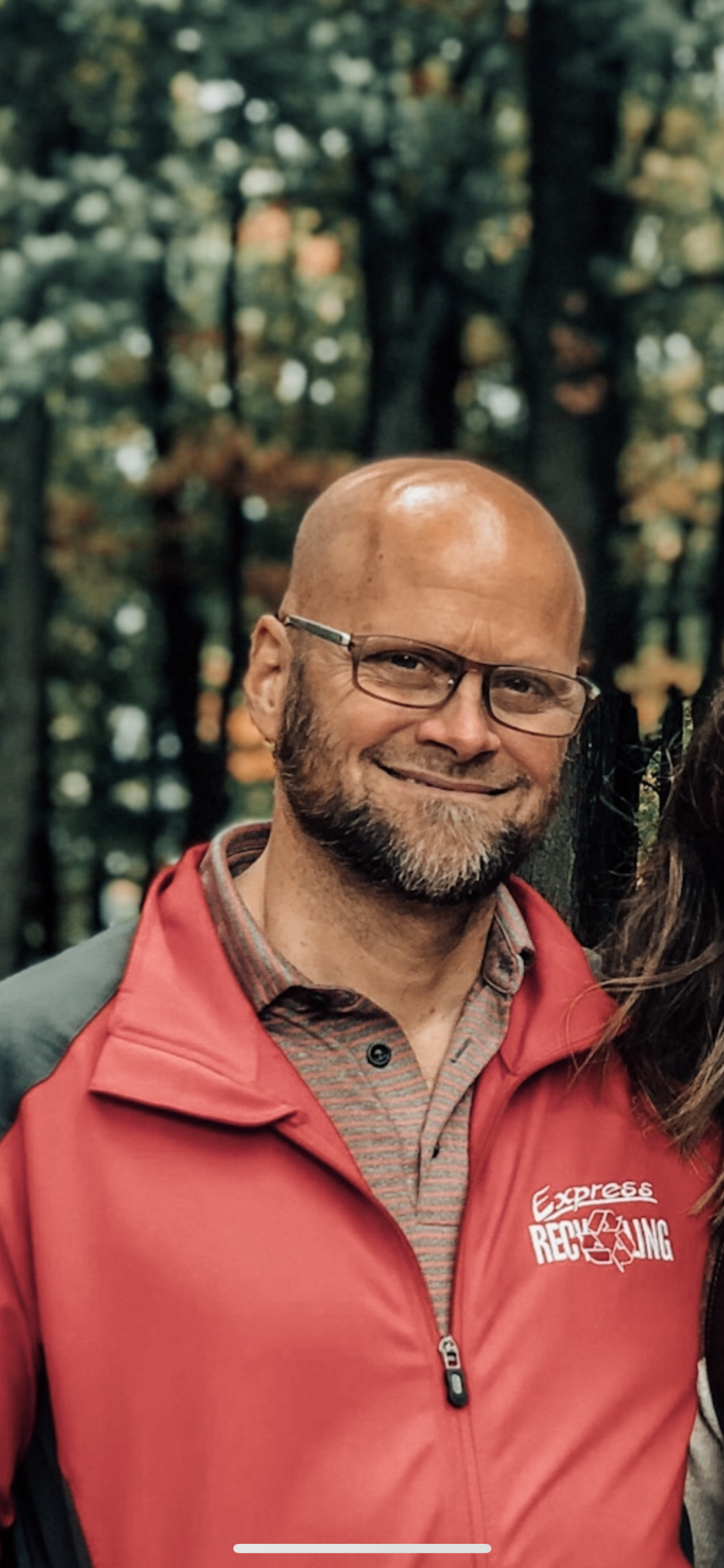Meet the candidates for Wisconsin Rapids City Council District 3 in the April 4 election
Incumbent Matthew Zacher will face challenger William D. Hascall for the District 3 seat on the Wisconsin Rapids City Council in the April 4 election.
Alderpersons serve a two-year term.
To learn more about registering to vote and to find your polling place, visit My Vote Wisconsin.
The Wisconsin Rapids Daily Tribune asked each of the candidates to address important issues in the district and why they are running for the position.
William D. Hascall

Age: 51
Residence: Wisconsin Rapids
Occupation and education: I am a caregiver, educator and advocate for the elderly and disabled. I received a bachelor's degree in instructional technology from California State University-Chico, a bachelor's degree in political science from the University of Wisconsin-Stevens Point and an master's degree in communication from UWSP.
Relevant experience: Currently on the board of directors of the Aging and Disability Resource Center, former board member of McMillan Memorial Library and numerous other nonprofit organizations, many of which receive government support.
Campaign website/Facebook page: Will Hascall on Facebook and www.willhascall.com
Matthew Zacher

Age: 52
Residence: Wisconsin Rapids
Occupation and education: Co-owner of Express Recycling Solutions Inc.; master's degree in social work
Relevant experience: Wisconsin Rapids City Council District 3 alderman for two years, Wisconsin Rapids Public Works Committee for one year, Wisconsin Rapids Finance and Property Committee chairperson for one year, Heart of Wisconsin Chamber of Commerce Board of Directors for five years, Heart of Wisconsin Chamber of Commerce Chairman of the Board of Directors for two years, Sustainable Operations and Recycling president for six years
Why are you running for this position?
Hascall: I like Wisconsin Rapids and the people here. I believe that my experience would be helpful to the city as we move forward. I grew up in a city which needed to reinvent itself, and I have seen how it can be done. I feel that Wisconsin Rapids needs to work on building a more cohesive and inclusive community that builds on what we already have here, and I believe that I can help with that.
Zacher: I am running for a second term as alderman of District 3 because I want to continue to help the residents of Wisconsin Rapids continue the hard transition from an industrial mill-based economy to an entrepreneurial-based economy.
What are residents telling you are the most important issues in District 3, and how would you address them?
Hascall: People want the city to build off what we already have: good schools, good services, some good parks and a well-respected library. I want to be a voice of reason that helps keep the good things in our city funded. I want to support future-oriented goals which address our changing economy and bring in new ideas to help the city leverage what it already has in order to grow into a more welcoming and diverse place.
Zacher: Of the residence I have spoken with the issue that comes up most often is how homeowners and businesses can get their projects accomplished faster and with less complications when working with the city. I have and will continue to work with Mayor Blaser and Director of Community Development Kyle Kearns to help the communication flow more quickly when people are reporting issues. We have also been working on a plan to mainstream the process for residents when they are starting a project so they have a detailed list to make sure they are getting the city the information they need to keep the project on track.
What are the top two issues that you believe the Council should address?
Hascall: Budget responsibility and sustainable community development. It takes money to run a city and residents want to know that their money is being spent responsibly. We need to look at our budget and ask the hard questions. The way things have been done in the past may not be the best way now. We need to examine our goals and priorities. One priority should be sustainable community development that builds citizen participation and balances the city’s needs with budgetary constraints.
Zacher: The Council should keep in mind is that we are here to serve the people of our community. It is easy to get lost in the day-to-day issues that everyone is working hard to contend with, but the residents are our customers, and we have to show our appreciation for them. We also have a responsibility to keep our city and, in turn, the residents who pay the bills of the city, out of debt. I believe we should take on a ‘no debt’ policy as a City Council and work to pay off the existing debt as soon as possible.
The city has been discussing issues with blocked train crossings for years and recently received a “Feasibility Study Report.” How would you like to see the city address this issue?
Hascall: Trains are extremely difficult to get around. They are an essential part of our economy but they are also extremely expensive and difficult to relocate. Unless the city is willing to spend a great deal of money building overpasses or underpasses so that residents can avoid railroad crossings, the only thing that we can do is lobby the state and the railroad companies themselves for shorter trains or changes in schedules which conflict less with high traffic times of the day.
Zacher: If the grant funding is available I believe it would be best to relocate the tracks to the outskirts of the city. This would not only help with the traffic issues but, in the long run, it would help with moving away from the industrial look of the city and open up the west side for more investment and rebuilding of the neighborhoods.
Since the closure of the Verso mill in 2020, residents have been discussing the need for more businesses and manufacturing jobs in the city. How can the City Council play a role in attracting new businesses?
Hascall: City Council can help by making clear development plans and by fostering a culture of community building which builds a stronger and more diverse economy. Wisconsin Rapids has been a manufacturing city but that does not mean that it will always be so. We should look at planning for the future. That may mean changing the focus away from large-scale manufacturing and attracting other industries such as health care, and continue efforts to attract remote workers.
Zacher: There are two ways our city can help with economic development. The first is to continue to educate and build the economic development department so it has a comprehensive package ready for any business that is interested in opening in Wisconsin Rapids. The difficulty with this program is we are competing with every other city for the same businesses. Therefore, I believe the second, and more realistic option, is to continue to communicate and work with the other organizations in Wisconsin Rapids to build a much more broadly encompassing entrepreneurial training program starting in grade school through high school and into adulthood.
More:These 4 retailers will move into the former Wisconsin Rapids Shopko. Here's what they'll offer.
More:Wisconsin Rapids development projects to watch in 2023: Shopko building, hospital, jail
Editor Jamie Rokus can be reached at jrokus@gannett.com or follow her on Twitter at @Jamie_Rokus.
This article originally appeared on Wisconsin Rapids Daily Tribune: Wisconsin Rapids Council District 3: Candidates on spring 2023 ballot
